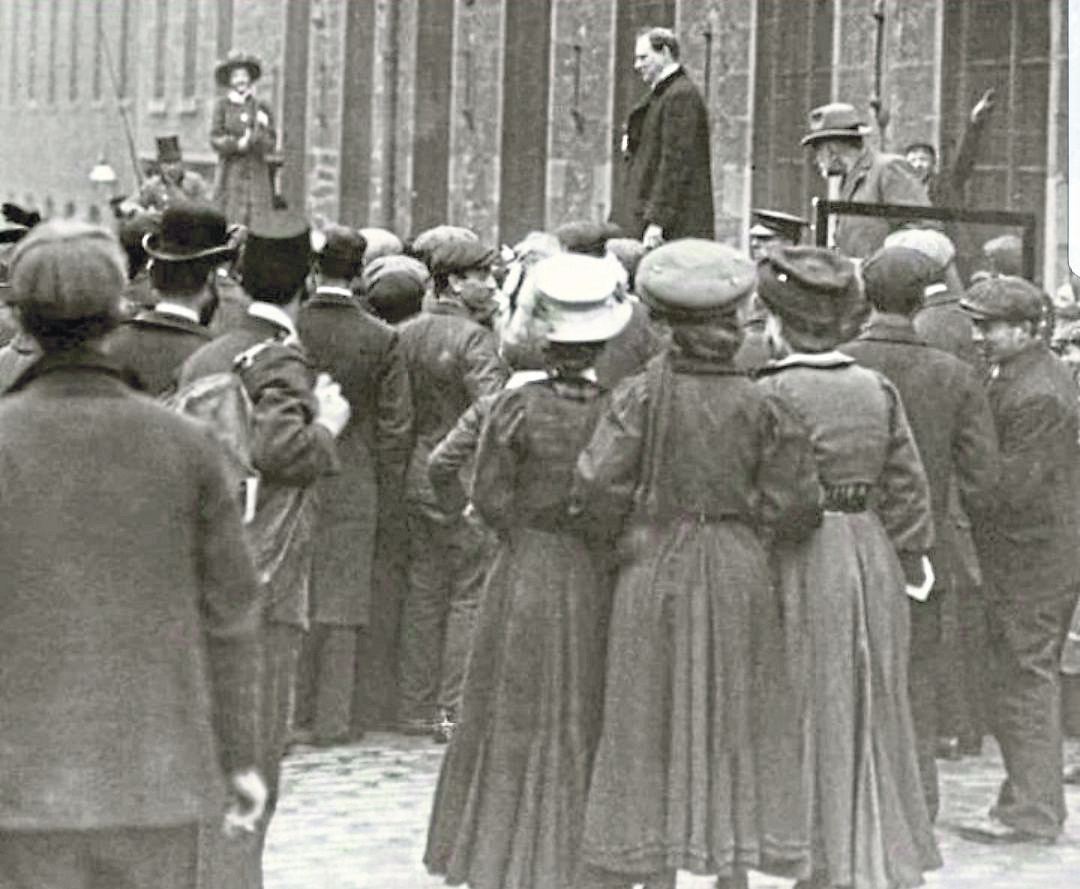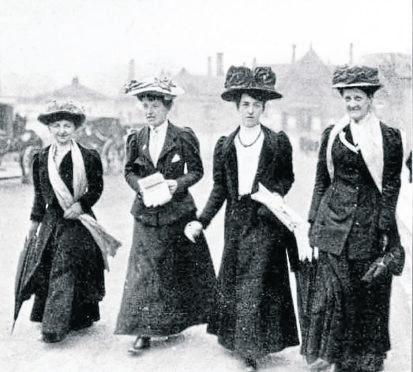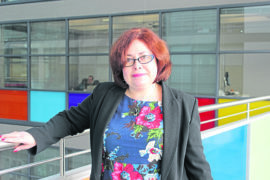The Scottish Suffragette movement was ground-breaking in so many ways and in a high-profile talk this week an Aberdeen professor will reveal how it successfully used the nation’s media to advance its cause.
Sarah Pederson will delve into the history of the movement’s relationship with the press this Saturday with a presentation in memory of an influential writer and feminist, historian and journalist.
Professor Pederson, from Robert Gordon University’s School of Creative and Cultural Business, will deliver this year’s Sue Innes Memorial Lecture for Women’s History Scotland.
Her discussion will focus on how the inspirational women of the movement both took advantage of media coverage at the time and how they were impacted by negative publicity.
Many newspapers of the day were hugely antagonistic to the Suffragette cause but were nonetheless filled with details of their meetings, marches and protests.
The women who risked all to raise their voices in public were, however, also a great source of news and were a hit with readers of the day, whether they supported the movement or not.
And Professor Pederson will also look at how journalists of the period used their stories to make headlines.
>> Keep up to date with the latest news with The P&J newsletter
She said: “I’m going to be talking about the way the Scottish press presented the suffragettes to its readership and highlight some of the ways the suffragettes were able to use this coverage to their advantage.
“I will also explore some of the abuse that they got from the papers of the time.
“They were able to use the press to get their arguments over. When they first started speaking in open air meetings, a lot of journalists would go along and report in quite fine detail about exactly what was being said.
“And so who they were, and what they arguments were, were presented in these very lengthy reports, which proved to be very positive for the movement. It got the message out.” Prof Pederson added: “Another area they were able to take advantage of was the ‘letters to the editor’ section.
“Newspaper editors at the time – even editors of what were then anti-suffrage publications like the Aberdeen Journal – freely published their letters and allowed them to make their voices heard, which really made a difference.

“And of course, the suffragettes were brilliant for the sales, because they really made for big headlines and helped to sell a lot of papers.”
The professor added: “I look forward to sharing more with everyone who attends the Sue Innes Memorial Lecture and raising the public’s awareness of the activities of their own local suffragettes – without whom we would likely not be where we are today.”
The talk will take place at Abertay University in Dundee at 4pm on Saturday.
Power of the Press
As part of her discussion on the suffragette movement and its relationship to the press, Professor Sarah Pedersen will highlight key parts of the campaign to allow women to vote from all across the north-east of Scotland.
Societies to campaign for equal voting rights for women were established in Aberdeen, Glasgow and Edinburgh by the 1870s, and by the turn of the century the majority of Scotland’s towns and cities were host to organised groups determined to make a change.
One of the key features of the professor’s talk will be the contrast between how Scottish and English prisons treated their suffragette inmates.
While English jails had adopted the practice of forcibly feeding those on hunger strike, Scotland’s policy was to release suffragettes on hunger strike.
According to Prof Pederson, one trailblazing campaigner, Emily Wilding Davison, was released from prison in Aberdeen after a period of hunger strikes and wrote to the Aberdeen Free Press at the time to celebrate the country’s decision to not force feed.
In her letter, she said: “The truth is that bonnie Scotland will not adopt the barbarity of forcible feeding. All honour to her.”

